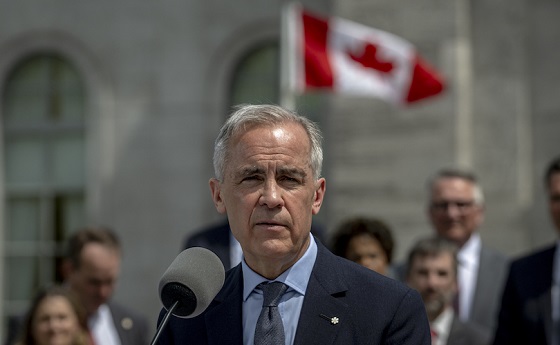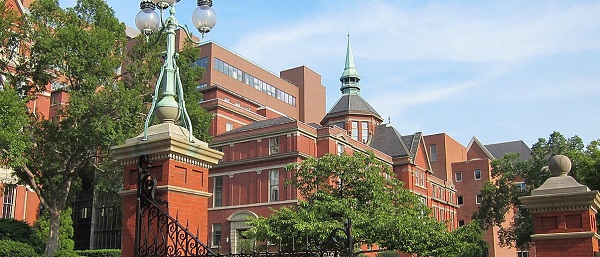Uncategorized
Haitians seek water, food as businesses reopen after protest

PORT-AU-PRINCE, Haiti — Businesses and government offices slowly reopened across Haiti on Monday after more than a week of violent demonstrations by hundreds of thousands of protesters demanding the resignation of President Jovenel Moise over skyrocketing prices that have more than doubled for basic goods amid allegations of government corruption.
Public transportation resumed in the capital, Port-au-Prince, where people began lining up to buy food, water and gasoline as crews cleared streets of barricades thrown up during the protests.
Moise has refused to step down, though his prime minister, Jean-Henry Ceant, said over the weekend that he has agreed to reduce certain government budgets by 30
Many Haitians remained wary of those promises, and schools remained closed on Monday amid concerns of more violence.
“The government is making statements that are not changing anything at this point,” said Hector Jean, a moto taxi driver who was waiting for customers. He recently had to buy a gallon of gas for 500 gourdes ($6), more than twice what he normally pays, and he has been unable to find customers who can afford to pay higher fares.
“It’s very hard to bring something home,” he said. “I have three kids.”
Other goods in the Western Hemisphere’s poorest nation have also doubled in price in recent weeks: A sack of rice now costs $18 and a can of dry beans around $7. In addition, a gallon of cooking oil has gone up to nearly $11 from $7. Inflation has been in the double digits since 2014, and the price hikes are angering many people in Haiti, where about 60 per cent of its nearly 10.5 million people struggle to get by on about $2 a day. A recent report by the U.S. Agency for International Development said about half the country is undernourished.
Dozens of people on Monday stood outside a financial services company waiting to pick up money transfers from relatives abroad. Among them was 35-year-old Andre Simon, a taxi driver who had been standing in line for at least three hours and has been unable to work for more than a week.
“I don’t have anything at home,” said Simon, who drives a small, brightly colored truck known as a tap-tap. “I need that money badly.”
The latest violent demonstrations prompted the U.S. government to warn people last week not to travel to Haiti as it urged Moise’s administration to implement economic reforms and redouble efforts to fight corruption and hold accountable those implicated in the scandal over the Venezuelan subsidized oil program, known as Petrocaribe. A Haitian Senate investigation has alleged embezzlement by at least 14 former officials in ex-President Michel Martelly’s administration, but no one has been charged. Meanwhile, Haitians have demanded a probe into the spending of the $3.8 billion Haiti received as part of the Petrocaribe program.
“Corruption goes unpunished, and people are just really tired of it,” said Athena Kolbe, a human rights researcher who has worked in Haiti. “I can’t imagine that things are going to calm down.”
She said she doesn’t believe claims that opposition leaders are behind the demonstrations or that people are being paid to protest as has happened in previous years given the incredible number of people that have taken to the streets in recent days. However, Kolbe warned that even if Moise were forced to step down, it would not resolve one of Haiti’s underlying issues: how to address corruption.
“People are just kind of exhausted with the business elite running the country and retaining control and not knowing where public funds are going,” she said.
Martelly hand-picked Moise in 2015 to be the candidate for the ruling Tet Kale party even though the businessman from northern Haiti had never run for office. Moise was sworn in as president in February 2017 for a five-year term and promised to fight corruption and bring investment and jobs to one of the least developed nations in the world. His swearing-in marked Haiti’s return to
Moise’s administration previously set off deadly protests in July when officials abruptly announced double-digit increases in the prices for gasoline, diesel and kerosene as part of an agreement with the International Monetary Fund to eliminate fuel subsidies and boost government revenue. At least seven people died in those protests, which also forced Prime Minister Jack Guy Lafontant to resign after facing a no-confidence vote in parliament.
___
Associated Press writer Evens Sanon reported this story in Port-au-Prince, Haiti, and AP writer Danica Coto reported from San Juan, Puerto Rico.
Evens Sanon And Danica Coto, The Associated Press
Uncategorized
Trump Admin Establishing Council To Make Buildings Beautiful Again


From the Daily Caller News Foundation
By Jason Hopkins
The Trump administration is creating a first-of-its-kind task force aimed at ushering in a new “Golden Age” of beautiful infrastructure across the U.S.
The Department of Transportation (DOT) will announce the establishment of the Beautifying Transportation Infrastructure Council (BTIC) on Thursday, the Daily Caller News Foundation exclusively learned. The BTIC seeks to advise Transportation Secretary Sean Duffy on design and policy ideas for key infrastructure projects, including highways, bridges and transit hubs.
“What happened to our country’s proud tradition of building great, big, beautiful things?” Duffy said in a statement shared with the DCNF. “It’s time the design for America’s latest infrastructure projects reflects our nation’s strength, pride, and promise.”
“We’re engaging the best and brightest minds in architectural design and engineering to make beautiful structures that move you and bring about a new Golden Age of Transportation,” Duffy continued.
Mini scoop – here is the DOT’s rollout of its Beautifying Transportation Infrastructure Council, which will be tasked with making our buildings beautiful again. pic.twitter.com/
9iV2xSxdJM — Jason Hopkins (@jasonhopkinsdc) October 23, 2025
The DOT is encouraging nominations of the country’s best architects, urban planners, artists and others to serve on the council, according to the department. While ensuring that efficiency and safety remain a top priority, the BTIC will provide guidance on projects that “enhance” public areas and develop aesthetic performance metrics.
The new council aligns with an executive order signed by President Donald Trump in August 2025 regarding infrastructure. The “Making Federal Architecture Beautiful Again” order calls for federal public buildings in the country to “respect regional architectural heritage” and aims to prevent federal construction projects from using modernist and brutalist architecture styles, instead returning to a classical style.
“The Founders, in line with great societies before them, attached great importance to Federal civic architecture,” Trump’s order stated. “They wanted America’s public buildings to inspire the American people and encourage civic virtue.”
“President George Washington and Secretary of State Thomas Jefferson consciously modeled the most important buildings in Washington, D.C., on the classical architecture of ancient Athens and Rome,” the order continued. “Because of their proven ability to meet these requirements, classical and traditional architecture are preferred modes of architectural design.”
The DOT invested millions in major infrastructure projects since Trump’s return to the White House. Duffy announced in August a $43 million transformation initiative of the New York Penn Station in New York City and in September unveiledmajor progress in the rehabilitation and modernization of Washington Union Station in Washington, D.C.
The BTIC will comprise up to 11 members who will serve two-year terms, with the chance to be reappointed, according to the DOT. The task force will meet biannually. The deadline for nominations will end Nov. 21.
Uncategorized
New report warns WHO health rules erode Canada’s democracy and Charter rights

The Justice Centre for Constitutional Freedoms has released a new report titled Canada’s Surrender of Sovereignty: New WHO health regulations undermine Canadian democracy and Charter freedoms. Authored by Nigel Hannaford, a veteran journalist and researcher, the report warns that Canada’s acceptance of the World Health Organization’s (WHO) revised International Health Regulations (IHR) represents a serious erosion of national independence and democratic accountability.
The IHR amendments, which took effect on September 19, 2025, authorize the WHO Director-General to declare global “health emergencies” that could require Canada to follow directives from bureaucrats in Geneva, bypassing the House of Commons and the will of Canadian voters.
The WHO regards these regulations as “binding,” despite having no ability or legal authority to impose such regulations. Even so, Canada is opting to accept the regulations as binding.
By accepting the WHO’s revised IHR, the report explains, Canada has relinquished its own control over future health crises and instead has agreed to let the WHO determine when a “pandemic emergency” exists and what Canada must do to respond to it, after which Canada must report back to the WHO.
In fact, under these International Health Regulations, the WHO could demand countries like Canada impose stringent freedom-violating health policies, such as lockdowns, vaccine mandates, or travel restrictions without debate, evidence review, or public accountability, the report explains.
Once the WHO declares a “Pandemic Emergency,” member states are obligated to implement such emergency measures “without delay” for a minimum of three months.
Importantly, following these WHO directives would undermine government accountability as politicians may hide behind international “commitments” to justify their actions as “simply following international rules,” the report warns.
Canada should instead withdraw from the revised IHR, following the example of countries like Germany, Austria, Italy, Czech Republic, and the United States. The report recommends continued international cooperation without surrendering control over domestic health policies.
Constitutional lawyer Allison Pejovic said, “[b]y treating WHO edicts as binding, the federal government has effectively placed Canadian sovereignty on loan to an unelected international body.”
“Such directives, if enforced, would likely violate Canadians’ Charter rights and freedoms,” she added.
Mr. Hannaford agreed, saying, “Canada’s health policies must be made in Canada. No free and democratic nation should outsource its emergency powers to unelected bureaucrats in Geneva.”
The Justice Centre urges Canadians to contact their Members of Parliament and demand they support withdrawing from the revised IHR to restore Canadian sovereignty and reject blind compliance with WHO directives.
-

 Addictions1 day ago
Addictions1 day agoCanadian gov’t not stopping drug injection sites from being set up near schools, daycares
-

 Business1 day ago
Business1 day agoParliamentary Budget Officer begs Carney to cut back on spending
-

 Education1 day ago
Education1 day agoWhy classroom size isn’t the issue teacher unions think it is
-

 Business1 day ago
Business1 day agoCarney government needs stronger ‘fiscal anchors’ and greater accountability
-

 Alberta1 day ago
Alberta1 day agoFederal budget: It’s not easy being green
-

 Fraser Institute2 days ago
Fraser Institute2 days agoCourts and governments caused B.C.’s property crisis—they’re not about to fix it
-

 Alberta1 day ago
Alberta1 day agoChatGPT may explain why gap between report card grades and standardized test scores is getting bigger
-

 Education1 day ago
Education1 day agoJohns Hopkins University Announces Free Tuition For Most Students









